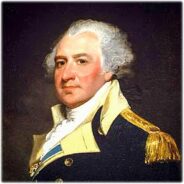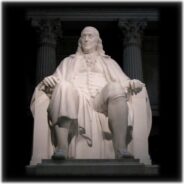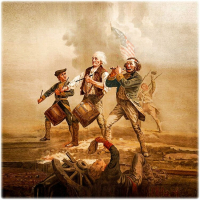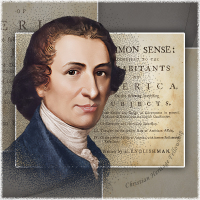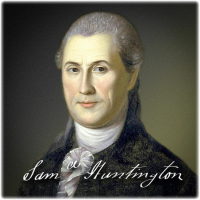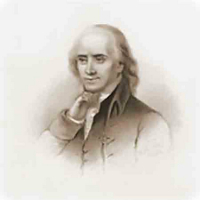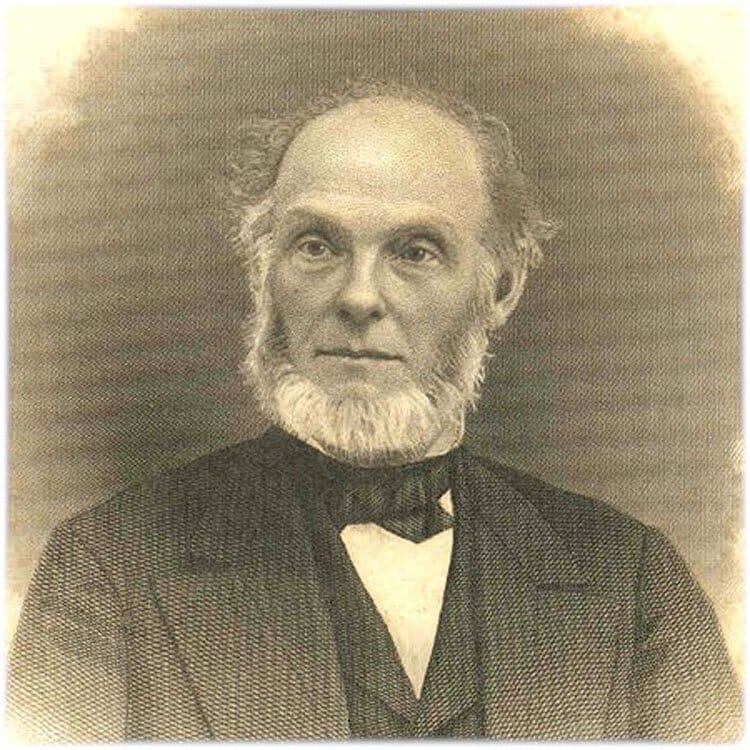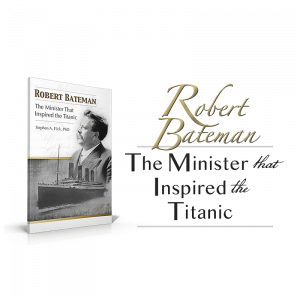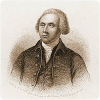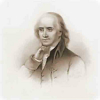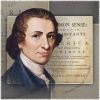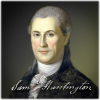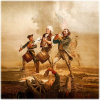August 3, 1784: Congressional Day of Prayer and Thanksgiving
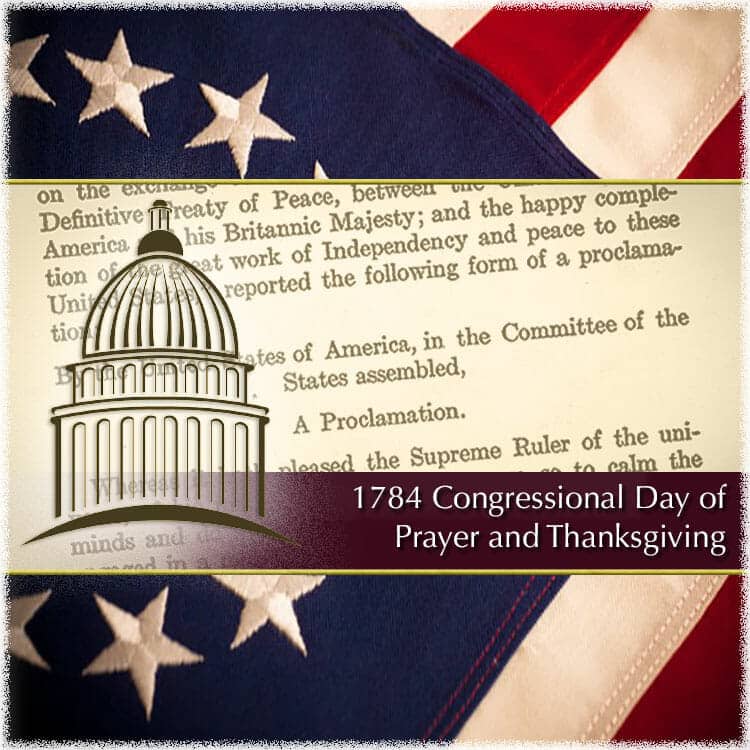
On August 3, 1784, the Continental Congress issued a proclamation for a "day of solemn prayer and thanksgiving." It was the sixteenth such proclamation issued by Congress throughout the years of the American Revolution. From June of 1775 to August of 1784, Congress generally issued at least one proclamation calling the states to prayer, fasting, and thanksgiving. Usually, two such proclamations were issued each year with one in the spring calling Americans to "fasting, humiliation, and prayer," while a second proclamation in the fall generally invited citizens to "thanksgiving and prayer." Prior to the ratification and implementation of the United States Constitution in 1789, the August 1784 congressional day of prayer and thanksgiving proclamation was the last of its kind. That America's Founding Fathers never intended to exclude Christianity from public life is evident from this and similar proclamations.1784 Congressional Day of Prayer
The subject addressed in this article is discussed at greater length in When Congress Asked America to Fast, Pray, and Give Thanks to God. Christian Heritage Fellowship would be honored to work with individuals, businesses, churches, institutions, or organizations to help communicate the truth concerning the positive influence of the Christian faith by providing bulk pricing: Please contact us here... To purchase a limited quantity of this publication, please click: Purchase here...
Article Contents
Thomas Mifflin (January 10, 1744 – January 20, 1800) was an American merchant who had served as a major general in the Continental Army during the American Revolution. In addition to serving in the Continental Congress, he served his home state of Pennsylvania in the Provincial Assembly, as Speaker of the Pennsylvania House of Representative, and as first Governor of the State. At the time this final prayer and thanksgiving proclamation was issued by Congress, Thomas Mifflin was serving as President of Congress (November 4, 1783 - November 29, 1784).
For nearly a decade, Congress had often annually issued two proclamations encouraging Americans to seek the favor of God. The most common practice of Congress concerning the development of these Christian proclamations was to appoint a committee; the members in turn developed the substance of the proclamations and presented them to the entire body of Congress for approval.[1] Often, only a few days transpired between the appointment of a committee and the submission of their proclamation to Congress. In this case, the committee was selected on August 2, 1784—as recorded in the Journals of the Continental Congress:
MONDAY, AUGUST 2, 1784
[Motion of Mr. Jacob Read seconded by Mr. Richard Dobbs Spaight.]
That a Committee be appointed to prepare a proclamation for a day of solemn prayer and thanksgiving to Almighty God, to be observed throughout the United States of America, on the exchange of the Instruments of Ratification of the Definitive Treaty between the United States of America and his Britannic Majesty and the happy completion of the great work of Independency and peace to these United States.[2]
Day of Solemn Prayer and Thanksgiving
The day after the committee was charged "to prepare a proclamation for a day of solemn prayer and thanksgiving to Almighty God," their completed work was submitted to the Congress for approval. It is evident from the content of the proclamation that the Founding Fathers were not deists. Rather, they believed that God was active in the world He had created. What is more, they affirmed various Christian doctrines, not the least of which was their Christian faith in Jesus Christ with simple references as, "in the year of our Lord." The extent and character of the proclamation—as recounted in the Journals of the Continental Congress—make it clear the committee took their charge of solemnity seriously:
TUESDAY, AUGUST 3, 1784
The committee, consisting of Mr. [Jacob] Read, Mr. [Francis] Dana, and Mr. [Edward] Hand, to whom was referred the motion of Mr. [Jacob] Read (seconded by Mr. [Richard Dobbs] Spaight) of the 2d instant "That a committee be appointed to prepare a proclamation for a day of solemn prayer and thanksgiving to Almighty God, to be observed throughout the United States of America, on the exchange of the instruments of ratification of the Definitive Treaty of Peace, between the United States of America and his Britannic Majesty; and the happy completion of the great work of Independency and peace to these United States," reported the following form of a proclamation:
By the United States of America, in the Committee of the States assembled,
A Proclamation.
Whereas it hath pleased the Supreme Ruler of the universe, of his infinite goodness and mercy, so to calm the minds and do away the resentments of the powers lately engaged in a most bloody and destructive war, and to dispose their hearts towards amity and friendship, that a general pacification hath taken place, and particularly a Definitive Treaty of peace between the said United States of America and his Britannic Majesty, was signed at Paris, on the 3d day of September, in the year of our Lord 1783; the instruments of the final ratifications of which were exchanged at Passy, on the 12th day of May, in the year of our Lord 1784, whereby a finishing hand was put to the great work of peace, and the freedom, sovereignty and independence of these states, fully and completely established: And whereas in pursuit of the great work of freedom and independence, and the progress of the contest in which the United States of America have been engaged, and on the success of which the dearest and most essential rights of human nature depended, the benign interposition of Divine Providence hath, on many occasions, been most miraculously and abundantly manifested; and the citizens of the United States have the greatest reason to return their most hearty and sincere praises and thanksgiving to the God of their deliverance; whose name be praised: Deeply impressed therefore with the sense of the mercies manifested to these United States, and of the blessings which it hath pleased God, to shower down on us, of our future dependence, at all times, on his power and mercy as the only source from which so great benefits can be derived; we, the United States of America, in the Committee of the States assembled, do earnestly recommend to the supreme executives of the several states, to set apart Tuesday, the 19th day of October next, as a day of public prayer and thanksgiving, that all the people of the United States may then assemble in their respective churches and congregations, to celebrate with grateful hearts, and joyful and united voices, the mercies and praises of their all-bountiful Creator, most holy, and most righteous! for his innumerable favors and mercies vouchsafed unto them; more especially that he hath been graciously pleased so to conduct us through the perils and dangers of the war, as finally to establish the United States in freedom and independency, and to give them a name and place among the princes and nations of the earth; that he hath raised up great captains and men of war from amongst us, to lead our armies, and in our greatest difficulties and distresses hath given us unanimity to adhere to and assert our just rights and privileges; and that he hath been most graciously pleased also, to raise up a most powerful prince and magnanimous people, as allies, to assist us in effectually supporting and maintaining them; that he hath been pleased to prosper the labor of our husbandmen; that there is no famine or want seen throughout our land: And above all, that he hath been pleased to continue to us the light of gospel truths, and secured to us, in the fullest manner, the rights of conscience in faith and worship.
And while our hearts overflow with gratitude, and our lips pronounce the praises of our great and merciful Creator, that we may also offer up our joint and fervent supplications, that it may please him of his infinite goodness and mercy, to pardon all our sins and offences; to inspire with wisdom and a true sense of public good, all our public councils; to strengthen and cement the bonds of love and affection between all our citizens; to impress them with an earnest regard for the public good and national faith and honor, and to teach them to improve the days of peace by every good work; to pray that he will, in a more especial manner, shower down his blessings on Louis the Most Christian King our ally, to prosper his house, that his son's sons may long sit on the throne of their ancestors, a blessing to the people entrusted to his charge; to bless all mankind, and inspire the princes and nations of the earth with the love of peace, that the sound of war may be heard of no more; that he may be pleased to smile upon us, and bless our husbandry, fishery, our commerce, and especially our schools and seminaries of learning; and to raise up from among our youth, men eminent for virtue, learning and piety, to his service in church and state; to cause virtue and true religion to flourish, to give to all nations amity, peace and concord, and to fill the world with his glory.
Done by the United States, in the Committee of the States assembled, witness the honbl Samuel Hardy, chairman, this— day of—, in the year of our Lord, andc. and in the 9th of the sovereignty and independence of the United States of America.[3]
Only three years later in 1787 when Framers were attempting to forge the Constitution, Benjamin Franklin rose to his feet and addressed his fellow delegates. Over the previous month, little progress was made toward the completion of their assigned responsibility. On May 25, Franklin evoked the memories of Congress' spiritual interests during the War of Independence, saying,
Mr. President
The small progress we have made after 4 or five weeks close attendance and continual reasonings with each other — our different sentiments on almost every question, several of the last producing as many noes as ays, is methinks a melancholy proof of the imperfection of the Human Understanding. We indeed seem to feel our own want of political wisdom, since we have been running about in search of it. We have gone back to ancient history for models of Government, and examined the different forms of those Republics which having been formed with the seeds of their own dissolution now no longer exist. And we have viewed Modern States all round Europe, but find none of their Constitutions suitable to our circumstances.
In this situation of this Assembly, groping as it were in the dark to find political truth, and scarce able to distinguish it when presented to us, how has it happened, Sir, that we have not hitherto once thought of humbly applying to the Father of lights to illuminate our understandings? In the beginning of the Contest with G. Britain, when we were sensible of danger we had daily prayer in this room for the divine protection. — Our prayers, Sir, were heard, and they were graciously answered. All of us who were engaged in the struggle must have observed frequent instances of a Superintending providence in our favor. To that kind providence we owe this happy opportunity of consulting in peace on the means of establishing our future national felicity. And have we now forgotten that powerful friend? or do we imagine that we no longer need his assistance? I have lived, Sir, a long time, and the longer I live, the more convincing proofs I see of this truth — that God governs in the affairs of men. And if a sparrow cannot fall to the ground without his notice, is it probable that an empire can rise without his aid? We have been assured, Sir, in the sacred writings, that “except the Lord build the House they labour in vain that build it.” I firmly believe this; and I also believe that without his concurring aid we shall succeed in this political building no better than the Builders of Babel: We shall be divided by our little partial local interests; our projects will be confounded, and we ourselves shall become a reproach and bye word down to future ages. And what is worse, mankind may hereafter from this unfortunate instance, despair of establishing Governments by Human Wisdom and leave it to chance, war and conquest.
I therefore beg leave to move — that henceforth prayers imploring the assistance of Heaven, and its blessings on our deliberations, be held in this Assembly every morning before we proceed to business, and that one or more of the Clergy of this City be requested to officiate in that service —[4]
Rather than push God out of public life, America's Founding Fathers appealed to the mooring of their Christian faith. As Franklin noted, America was obligated to continue to seek the guidance of Almighty God if it was to continue to experience His blessings.
America deserves to know its true heritage.
Please contribute today!
"Anchor Elements" are concepts, events, individuals, terms, or other important components that are featured in this article and which act as reference points for use in other articles throughout our site.
No index entries found.
[1] On an occasion or two, the Journals of the Continental Congress fail to note this initial step in the composition of a proclamation.
[2] Journals of the Continental Congress, 27:525.
[3] Journals of the Continental Congress, 27:627-630.
[4] Records of the Federal Convention, 1:450-52.

